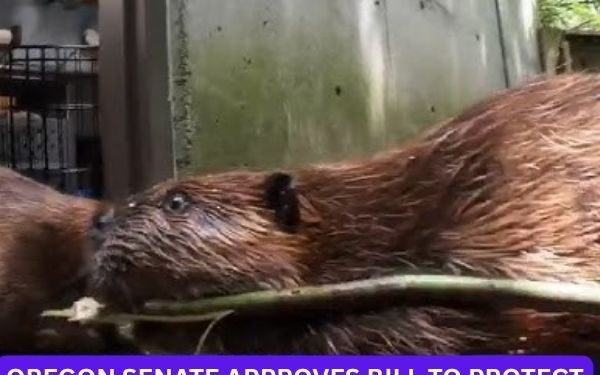Oregon is turning to one of its most iconic animals to help restore the state’s struggling waterways. In a major environmental move, the Oregon Senate has passed House Bill 3932, a measure that will protect beavers on state and federal lands in an effort to rehabilitate ecosystems and improve water quality.
The bill specifically targets over 100,000 miles of impaired waterways suffering from high sediment levels, low oxygen, and rising water temperatures. Under the new law, beavers will be protected from trapping and removal in these sensitive areas, allowing them to carry out their natural work—building dams, restoring wetlands, and supporting biodiversity.
“If we started from scratch to create a resource to improve water quality and quantity on our impaired streams, we couldn’t do better than beavers,” said Sen. Jeff Golden (D–Ashland), praising the bill’s approach.
Beavers are known as ‘ecosystem engineers’, and Oregon lawmakers hope this legislation will enhance the resilience of the landscape amid ongoing climate challenges. Sen. Courtney Neron Misslin (D–Wilsonville) added, “Beavers help stabilize ecosystems, improve water quality, and build natural resilience against the climate impacts we’re already facing.”
The bill leaves current laws for private land beaver management unchanged, which lawmakers say keeps the impact on Oregon trappers minimal. According to data cited in the bill, only 4% of beaver trapping currently occurs on impaired public waterways—making this a targeted, science-backed conservation effort.
Rep. Pam Marsh (D–Southern Jackson County) emphasized the practical and proven benefits of this approach: “Scientific research has shown us this strategy can work.”
The Oregon Department of Fish and Wildlife will now be responsible for publishing a map of the protected waterways, ensuring transparency and informed management.
After passing the Senate in a 17-11 vote, the bill now heads to Governor Tina Kotek’s desk for final approval. If signed into law, Oregon will formally embrace the beaver’s role in restoring the state’s environment—bringing new meaning to the nickname The Beaver State.










